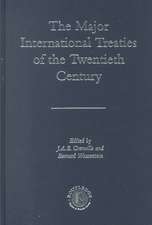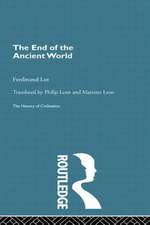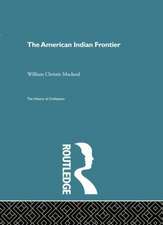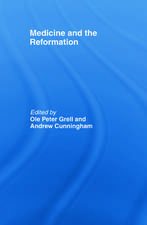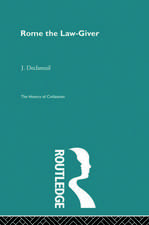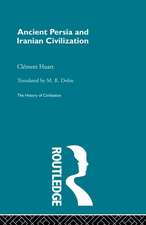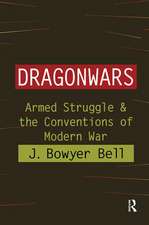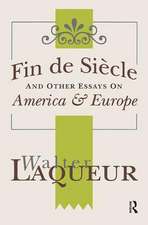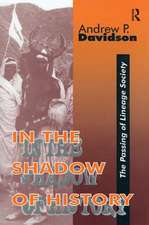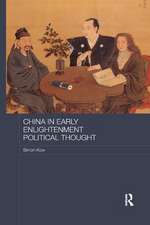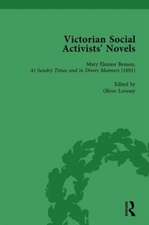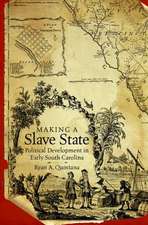The Philosophy of Japanese Wartime Resistance: A reading, with commentary, of the complete texts of the Kyoto School discussions of "The Standpoint of World History and Japan": Routledge Studies in the Modern History of Asia
Autor David Williamsen Limba Engleză Paperback – 9 dec 2016
David Williams has now produced the first objective, balanced and close interpretative reading of these three discussions in their entirety since 1943. This version of the wartime Kyoto School transcripts is neither a translation nor a paraphrase but a fuller rendering in reader-friendly English that is convincingly faithful to the spirit of the original texts. The result is a masterpiece of interpretation and inter-cultural understanding between the Confucian East and the liberal West. Seventy years after Tojo came to power, these documents of the Japanese resistance to his wartime government and policies exercise a unique claim on students of Japanese history and thought today because of their unrivalled revelatory potential within the vast literature on the Pacific War. The Philosophy of Japanese Wartime Resistance may therefore stand as the most trenchant analysis of the political, philosophic and legal foundations of the place of the Pacific War in modern Japanese history yet to appear in any language.
| Toate formatele și edițiile | Preț | Express |
|---|---|---|
| Paperback (1) | 325.34 lei 6-8 săpt. | |
| Taylor & Francis – 9 dec 2016 | 325.34 lei 6-8 săpt. | |
| Hardback (1) | 996.56 lei 6-8 săpt. | |
| Taylor & Francis – 8 apr 2014 | 996.56 lei 6-8 săpt. |
Din seria Routledge Studies in the Modern History of Asia
-
 Preț: 311.41 lei
Preț: 311.41 lei -
 Preț: 309.93 lei
Preț: 309.93 lei -
 Preț: 310.95 lei
Preț: 310.95 lei -
 Preț: 311.33 lei
Preț: 311.33 lei -
 Preț: 311.91 lei
Preț: 311.91 lei -
 Preț: 310.16 lei
Preț: 310.16 lei - 9%
 Preț: 902.36 lei
Preț: 902.36 lei -
 Preț: 371.71 lei
Preț: 371.71 lei - 25%
 Preț: 711.72 lei
Preț: 711.72 lei - 18%
 Preț: 1257.11 lei
Preț: 1257.11 lei - 18%
 Preț: 932.82 lei
Preț: 932.82 lei - 18%
 Preț: 1310.81 lei
Preț: 1310.81 lei - 18%
 Preț: 986.35 lei
Preț: 986.35 lei - 18%
 Preț: 1042.99 lei
Preț: 1042.99 lei -
 Preț: 417.76 lei
Preț: 417.76 lei - 18%
 Preț: 992.52 lei
Preț: 992.52 lei - 12%
 Preț: 355.35 lei
Preț: 355.35 lei - 18%
 Preț: 1039.89 lei
Preț: 1039.89 lei - 18%
 Preț: 1042.99 lei
Preț: 1042.99 lei - 18%
 Preț: 1304.58 lei
Preț: 1304.58 lei - 18%
 Preț: 1040.78 lei
Preț: 1040.78 lei -
 Preț: 434.42 lei
Preț: 434.42 lei - 26%
 Preț: 820.03 lei
Preț: 820.03 lei - 18%
 Preț: 1041.94 lei
Preț: 1041.94 lei - 25%
 Preț: 824.17 lei
Preț: 824.17 lei - 18%
 Preț: 1045.72 lei
Preț: 1045.72 lei - 49%
 Preț: 218.36 lei
Preț: 218.36 lei - 18%
 Preț: 692.96 lei
Preț: 692.96 lei - 18%
 Preț: 995.00 lei
Preț: 995.00 lei - 25%
 Preț: 826.86 lei
Preț: 826.86 lei - 18%
 Preț: 985.71 lei
Preț: 985.71 lei - 15%
 Preț: 687.37 lei
Preț: 687.37 lei - 18%
 Preț: 1095.47 lei
Preț: 1095.47 lei - 25%
 Preț: 996.56 lei
Preț: 996.56 lei - 26%
 Preț: 765.01 lei
Preț: 765.01 lei - 18%
 Preț: 1041.94 lei
Preț: 1041.94 lei - 26%
 Preț: 821.94 lei
Preț: 821.94 lei - 18%
 Preț: 1038.19 lei
Preț: 1038.19 lei - 18%
 Preț: 989.09 lei
Preț: 989.09 lei -
 Preț: 486.37 lei
Preț: 486.37 lei - 18%
 Preț: 982.59 lei
Preț: 982.59 lei - 18%
 Preț: 1033.80 lei
Preț: 1033.80 lei - 18%
 Preț: 1047.81 lei
Preț: 1047.81 lei - 18%
 Preț: 1041.94 lei
Preț: 1041.94 lei - 25%
 Preț: 769.10 lei
Preț: 769.10 lei - 18%
 Preț: 1039.89 lei
Preț: 1039.89 lei - 26%
 Preț: 765.01 lei
Preț: 765.01 lei
Preț: 325.34 lei
Preț vechi: 371.71 lei
-12% Nou
Puncte Express: 488
Preț estimativ în valută:
62.29€ • 64.87$ • 51.68£
62.29€ • 64.87$ • 51.68£
Carte tipărită la comandă
Livrare economică 13-27 februarie
Preluare comenzi: 021 569.72.76
Specificații
ISBN-13: 9780415788113
ISBN-10: 0415788110
Pagini: 238
Ilustrații: 55 black & white illustrations, 48 black & white halftones, 14 black & white line drawings
Dimensiuni: 156 x 234 x 34 mm
Greutate: 0.45 kg
Ediția:1
Editura: Taylor & Francis
Colecția Routledge
Seria Routledge Studies in the Modern History of Asia
Locul publicării:Oxford, United Kingdom
ISBN-10: 0415788110
Pagini: 238
Ilustrații: 55 black & white illustrations, 48 black & white halftones, 14 black & white line drawings
Dimensiuni: 156 x 234 x 34 mm
Greutate: 0.45 kg
Ediția:1
Editura: Taylor & Francis
Colecția Routledge
Seria Routledge Studies in the Modern History of Asia
Locul publicării:Oxford, United Kingdom
Public țintă
PostgraduateCuprins
Prologue: The Kyoto School, Confucian Revolution and the Exhaustion of Liberal History
Part 1: Introduction and Commentary: The Prince of our Disorder and the Fate of Imperial Japan
1. Versailles to Pearl Harbor: Woodrow Wilson and the Origin of the Ethics of ‘Liberal Imperialism’
2. Ethics as Power: The Prince of our Disorder and the Fate of Imperial Japan: What is the Kyoto School?
What is the Kyoto School?
3. Learning to Resist Imperialism: The Three Phases of the Classic of Kyoto School and the Chūō Kōron Symposia on ‘the Standpoint of World History and Japan’
4. Confucianism, Realism and Liberalism: Three Approaches to the Chūō Kōron Symposia
5. How East Asians Argue: The Confucian Form and Language of the Chūō Kōron Symposia: The Pacific War and the Exhaustion of Liberal History
The Pacific War and the Exhaustion of Liberal History
6. The Revisionism of what Happens when: Parkes, Ōhashi, and the Exhaustion of Liberal History
7. Rejecting Tōjō’s Decision for War: The Kyoto School Rethinks the State, International Law and Globalization
8. Are Japan Studies Moral? Confucian Pacifism and Kellogg–Briand Liberalism between Voltaire and Walzer: The Kyoto School and the Post-Meiji Confucian Revolution
The Kyoto School and the Post-Meiji Confucian Revolution
9. Endless Pearl Harbors? The Kyoto Thinker as Grand Strategist
10. Confucian Tipping Points: How East Asians Make up their Minds
11. Plotting to Bring Tōjō Down: The Post-Meiji Confucian Revolution and the Kyoto School–Imperial Navy Conspiracy
Part 2: The Standpoint of World History and Japan or a Reading of the Complete Texts of the Three Chūō Kōron Symposia
I. Two Weeks Before Pearl Harbor: The First Symposium: ‘The Standpoint of World History and Japan’ (26 November 1941)
II. Three Days after the Fall of the Dutch East Indies: The Second Symposium: ‘The Ethical and Historical Character of the East Asian Co-prosperity Sphere’ (4 March 1942)
III. Five Months after Midway: The Third Symposium: ‘The Philosophy of World-historical Wars’ (24 November 1942)
Part 1: Introduction and Commentary: The Prince of our Disorder and the Fate of Imperial Japan
1. Versailles to Pearl Harbor: Woodrow Wilson and the Origin of the Ethics of ‘Liberal Imperialism’
2. Ethics as Power: The Prince of our Disorder and the Fate of Imperial Japan: What is the Kyoto School?
What is the Kyoto School?
3. Learning to Resist Imperialism: The Three Phases of the Classic of Kyoto School and the Chūō Kōron Symposia on ‘the Standpoint of World History and Japan’
4. Confucianism, Realism and Liberalism: Three Approaches to the Chūō Kōron Symposia
5. How East Asians Argue: The Confucian Form and Language of the Chūō Kōron Symposia: The Pacific War and the Exhaustion of Liberal History
The Pacific War and the Exhaustion of Liberal History
6. The Revisionism of what Happens when: Parkes, Ōhashi, and the Exhaustion of Liberal History
7. Rejecting Tōjō’s Decision for War: The Kyoto School Rethinks the State, International Law and Globalization
8. Are Japan Studies Moral? Confucian Pacifism and Kellogg–Briand Liberalism between Voltaire and Walzer: The Kyoto School and the Post-Meiji Confucian Revolution
The Kyoto School and the Post-Meiji Confucian Revolution
9. Endless Pearl Harbors? The Kyoto Thinker as Grand Strategist
10. Confucian Tipping Points: How East Asians Make up their Minds
11. Plotting to Bring Tōjō Down: The Post-Meiji Confucian Revolution and the Kyoto School–Imperial Navy Conspiracy
Part 2: The Standpoint of World History and Japan or a Reading of the Complete Texts of the Three Chūō Kōron Symposia
I. Two Weeks Before Pearl Harbor: The First Symposium: ‘The Standpoint of World History and Japan’ (26 November 1941)
II. Three Days after the Fall of the Dutch East Indies: The Second Symposium: ‘The Ethical and Historical Character of the East Asian Co-prosperity Sphere’ (4 March 1942)
III. Five Months after Midway: The Third Symposium: ‘The Philosophy of World-historical Wars’ (24 November 1942)
Recenzii
‘This deeply researched and provocative study highlights the key significance of Confucian political ideas for Kyoto School thinkers while demonstrating the futility of approaching their philosophy from the standpoint of ‘moral history’. – Graham Parkes, University College Cork, Ireland
Descriere
This is a complete translation, together with a substantial commentary and introduction, of The Standpoint of World History and Japan, an important work by leading philosophers of the Kyoto School, long regarded as one of the most notorious "fascist" texts produced in Japan during the Pacific War.

